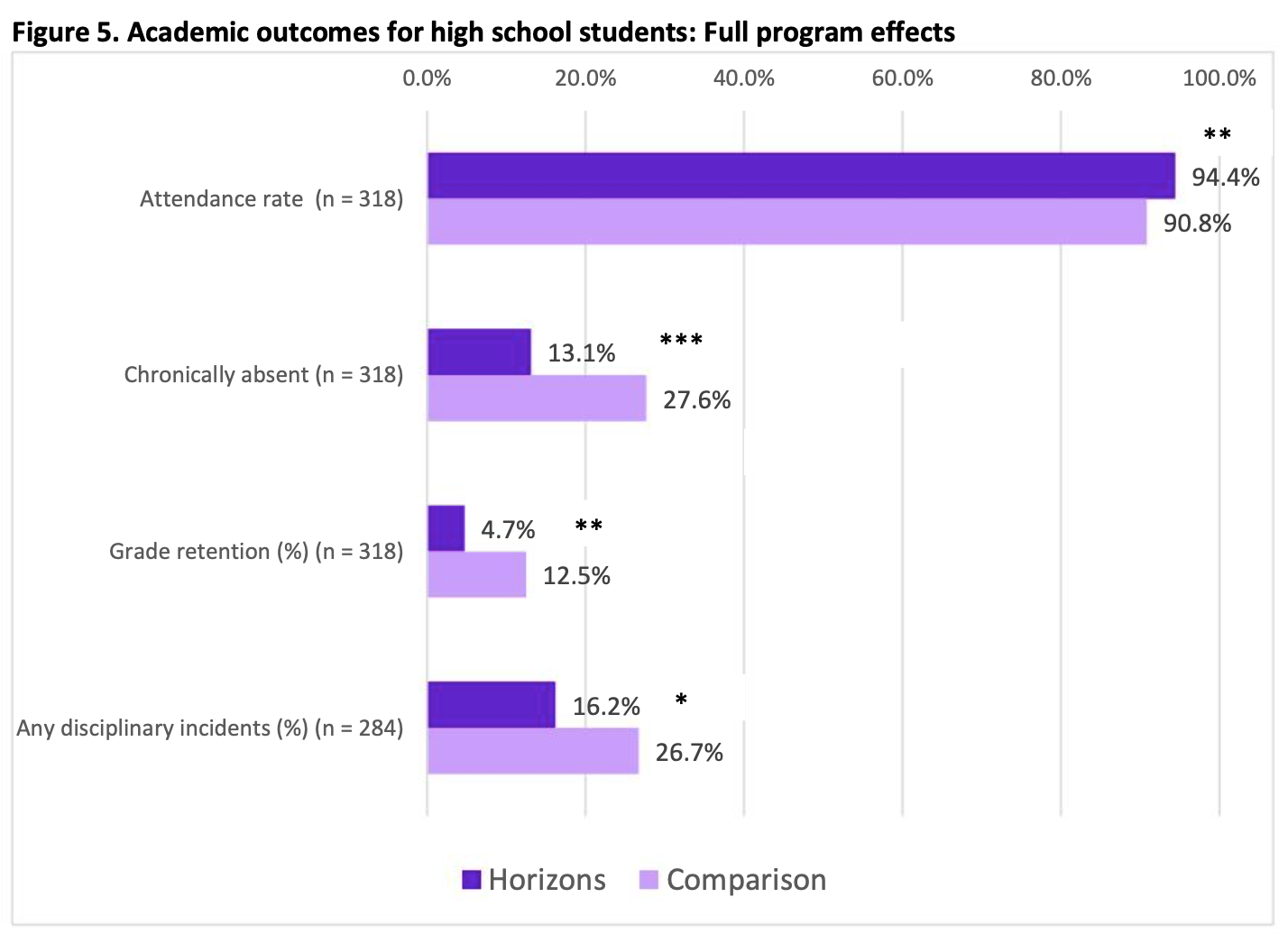Chronic Absenteeism: Horizons is the Solution
Posted on
If you are part of the K-12 education community, chances are you have read about our country’s skyrocketing rates of chronic absenteeism: students missing 10% or more of school days in a year. According to a new report, the proportion of students attending schools that had high or extreme rates of chronic absenteeism more than doubled from 26% during the 2017-18 school year to a startling 66% during the 2021-22 school year. These numbers are extremely troubling; chronic absenteeism has been linked to diminished health, involvement with the criminal justice system, and poverty. The Biden Administration recently urged schools to address absenteeism with more high-dosage tutoring, and summer and out-of-school learning opportunities.
How do we help our nation’s students? Horizons National believes the answer lies in out-of-school time learning programs like ours. There is tremendous potential in the learning and relationship-building that occurs outside of traditional school hours, often helping students feel more connected, motivated, and supported. For nearly 30 years, Horizons has partnered with schools and districts helping to address issues like chronic absenteeism – and our research proves the program’s impact.
In 2018, a study by Concentric Research and Evaluation compared the long-term outcomes of Horizons program participants to similar students who did not participate. The study found that Horizons elementary students’ rate of chronic absences was 3.8%, less than half that of comparison students at 9.3%. For both elementary and middle school students, the difference was more than five percentage points. The differences became more pronounced for Horizons students in high school, even when compared to students who had similar achievement levels in elementary school. Horizons high school students’ rate of chronic absences was 13.1%, compared to 27.6% for similar students.

The results of the study concluded:
- Horizons students are less likely to miss school days than their peers
- Attendance rates are higher and chronic absenteeism is less prevalent among long-term Horizons participants
- Long-term program participation can improve student outcomes, such as achieving higher scores on standardized assessments, higher GPAs in 9th grade, fewer incidences of repeating a grade, and fewer disciplinary referrals
Horizons programming helps to address chronic absenteeism across the country. Schools and districts cannot be expected to support students alone; it will take the mobilization of people and partnerships to build the enduring systems needed to provide long-term support to our nation’s young people. Horizons has a formula that works: a high-quality, evidence-based, whole-child centered model that can be adapted to any school, district, and student population. At Horizons, students gain self-confidence, form strong relationships with caring adults, and build more positive attitudes about learning – increasing the likelihood of students attending and enjoying school.
Stanford University economist Eric Hanushek estimates the lasting societal costs of the pandemic’s effects on students could amount to more than $28 trillion over the rest of this century. Investment in out-of-school time learning is an investment in our future.
Read more about chronic absenteeism:
- White House Urges Schools to Address Absenteeism Among Troubling Data via Washington Post
- Report: Schools Won't Recover from COVID Absentee Crisis Until at Least 2030 via The 74 Million
- High Absenteeism Hits More Schools, Affecting Students With Strong Attendance, Too via EdWeek
- Rising Tide of Chronic Absence Challenges Schools via Attendance Works
- Empty Desks: New Absenteeism Report Shows Dramatic Surge in Suburban, Rural & Latino Students Missing Class via The 74 Million
